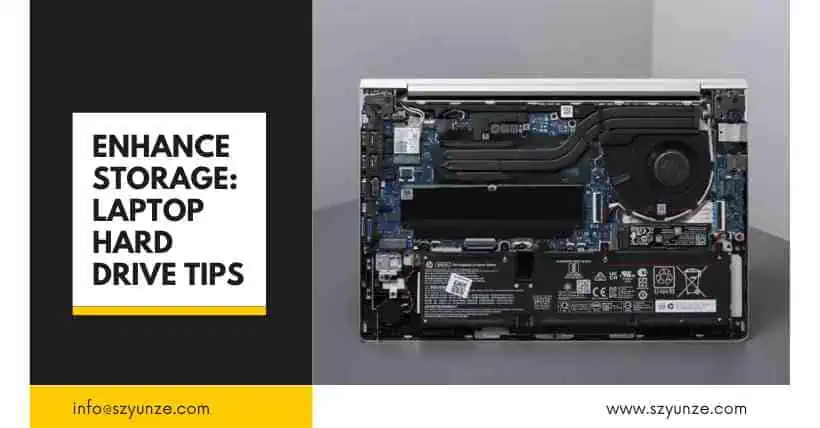Have you ever bought a brand-new computer, only to find that its hard disk space didn’t quite meet your expectations after some usage? This is a common issue encountered by users who seek to upgrade their computer’s storage. However, not all laptops permit easy hard disk upgrades. Let’s delve into the specifics to guide you through this process.
1. Understanding Laptop Hard Drive Configuration
When it comes to upgrading your laptop, distinguishing between memory and hard drives is crucial. While laptop memory is typically fixed, hard drives can be replaced or upgraded using specific methods. However, it’s not a straightforward process. You must determine your laptop’s hard drive size, type, and interface before purchasing a replacement.
2. Confirming Laptop Hard Drive Details Before Upgrading
Identifying the specifics of your laptop’s hard drive is imperative. Does it operate on a mechanical hard drive or a solid-state drive (SSD)? If it’s an SSD, what kind of interface does it utilize—SATA or M.2? Additionally, ascertain the size specifications: Is it 2230, 2242, 2280, or 22110 M.2 SSD? Knowing these details is vital before procuring a replacement SSD.
Moreover, understanding the number of hard drive slots your laptop supports is essential. While ultrabooks often possess only one M.2 SSD slot, older laptops might have one 2.5-inch mechanical hard drive slot. Some high-performance laptops offer the convenience of two M.2 SSD slots, enabling the addition of another SSD without displacing the original system disk.
3. Ways to Identify Suitable Hard Drive Upgrades
Determining the appropriate type of hard drive for your laptop might involve disassembling it to check directly. However, if that’s not feasible, consulting the official laptop parameter manual or exploring e-commerce platforms for hard drive details can provide the necessary information.
4. Recommended Capacity for Upgrading Laptop Hard Drive
Aim for a total capacity of at least 1TB when considering upgrading your laptop’s hard drive. Many modern laptops already come equipped with 480GB to 512GB SSDs. Opting for an expansion below 480GB might not significantly enhance storage. Older laptops, however, may not require such high-capacity upgrades.
5. Budget Considerations and Recommendations
For new purchases, investing in a 1TB hard drive directly optimizes the system. It’s advisable for seamless integration and warranty coverage, minimizing potential hassles. However, for older laptops, a same-level hard drive upgrade can improve performance without demanding excessive investment.
6. Conclusion
Upgrading a laptop’s hard drive involves several considerations. Understanding the specifics of your laptop’s hard drive and choosing the right upgrade in terms of capacity and type is crucial for optimal performance and longevity.
7. FAQs (Frequently Asked Questions)
-
Can all laptops have their hard drives upgraded?
Not all laptops allow for easy hard drive upgrades. While some laptops are designed with accessible slots for upgrades, others may have integrated or soldered components, making upgrades difficult or impossible.
-
What is the importance of checking the number of hard drive slots?
Checking the number of hard drive slots is crucial as it determines the potential for expanding storage. Knowing the available slots helps in choosing the right type and number of drives for upgrade purposes.
-
Is it necessary to disassemble the laptop to identify its hard drive type?
While disassembling the laptop is the most accurate method, it’s not always necessary. Consulting the official laptop manual or examining e-commerce descriptions can often provide the required details without disassembly.
-
Why is a 1TB capacity recommended for hard drive upgrades?
A 1TB capacity is recommended as it offers ample space for storing various files, applications, and operating systems. It provides enough room for future needs while significantly enhancing the laptop’s storage capability.
-
Should I upgrade the hard drive if I’ve recently purchased a new laptop?
If the recently purchased laptop meets your storage needs and functions well, there might not be an immediate necessity to upgrade. However, if you foresee requiring additional space or improved performance, upgrading the hard drive can be beneficial in the long run.




